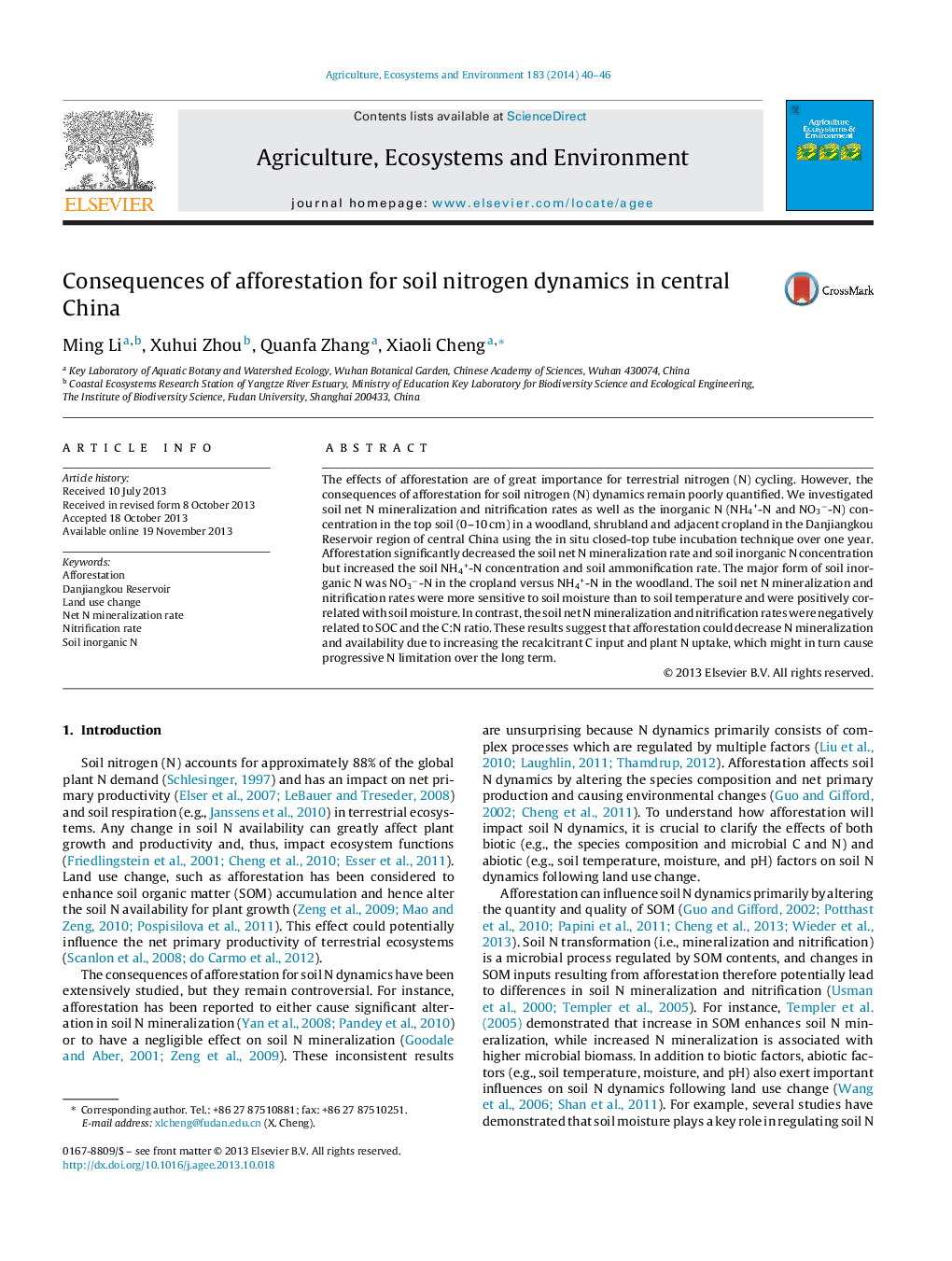| Article ID | Journal | Published Year | Pages | File Type |
|---|---|---|---|---|
| 2414163 | Agriculture, Ecosystems & Environment | 2014 | 7 Pages |
•Afforestation decreased soil net N mineralization rate and soil inorganic N concentration.•Afforestation increased soil NH4+-N concentration and ammonification rate.•Soil net N mineralization rate was negatively related with SOC and C:N ratio.•Afforestation may cause progressive N limitations due to decreased soil N availability.
The effects of afforestation are of great importance for terrestrial nitrogen (N) cycling. However, the consequences of afforestation for soil nitrogen (N) dynamics remain poorly quantified. We investigated soil net N mineralization and nitrification rates as well as the inorganic N (NH4+-N and NO3−-N) concentration in the top soil (0–10 cm) in a woodland, shrubland and adjacent cropland in the Danjiangkou Reservoir region of central China using the in situ closed-top tube incubation technique over one year. Afforestation significantly decreased the soil net N mineralization rate and soil inorganic N concentration but increased the soil NH4+-N concentration and soil ammonification rate. The major form of soil inorganic N was NO3−-N in the cropland versus NH4+-N in the woodland. The soil net N mineralization and nitrification rates were more sensitive to soil moisture than to soil temperature and were positively correlated with soil moisture. In contrast, the soil net N mineralization and nitrification rates were negatively related to SOC and the C:N ratio. These results suggest that afforestation could decrease N mineralization and availability due to increasing the recalcitrant C input and plant N uptake, which might in turn cause progressive N limitation over the long term.
